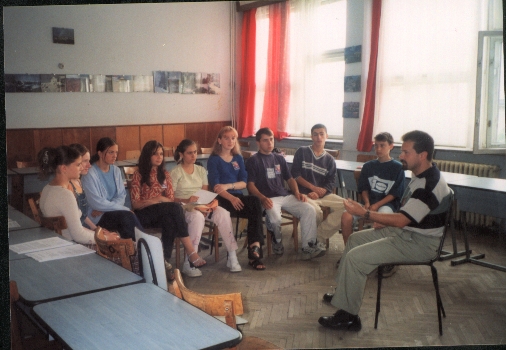|
|
||||||||||||||||||||
|
|
|||||||||||
 |
|||||||||||
|
PERSONAL SKILLS COURSE 17th July 2001 – 26th July 2001 Introduction to Personal Skills The Social Sciences of Psychology and Sociology teach us that human behaviour is not merely casual behaviour, but it is an orderly patterned behaviour based on values. Values may be defined as “prioritised priorities”. Every human being is born free to choose and make decisions. When the personal choices of the individual are prioritised they become personal values: values upon which the person governs his/her life. When certain values are shared among three or more persons they become group values. If the social group is so large that becomes a community, the shared values become the social norms, which establish a given culture.
Although every person is born with free will to choose and make decisions, values are learnt, or rather internalised, through a process – a process known as socialization. The process of socialization starts within the institution of the family, continues through the institution of education – formal teaching – and is enhanced through reciprocal interaction within a given community.
The term “Personal Skills” refer to those skills through which people socialize and function effectively in society. “No man is an island”. In order to function effectively in society, human beings must communicate effectively with their fellow humans, through the value of mutual respect which all starts at self-respect: you cannot really respect others unless you respect yourself! Therefore the basis of personal skills are the “intrapersonal skills” (such as self-awareness, self esteem, and positive thinking). Following the intrapersonal skills are the interpersonal skills which include effective communication, listening, empathy and assertiveness. Although the use of languages (as English) and computer skills are essential for personal success in the rapid process of globalization HUMAN BEINGS NEED PERSONAL CONTACT WITH OTHER HUMAN BEINGS. The aims of this course are the following:
|


